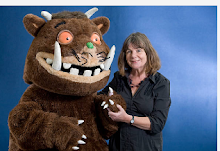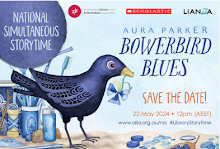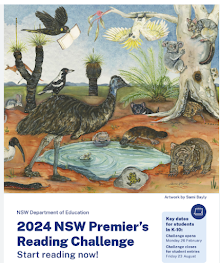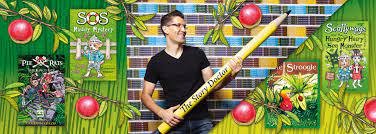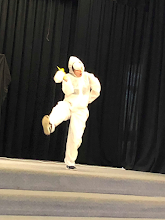In term
three we enjoyed a wonderful celebration of reading. The students thoroughly
enjoyed the presentations made by authors Jess Black and Mark Greenwood. They
are two extremely talented authors and it was a privilege to meet them and
learn about their work. Their books have been very popular in the library ever
since their visits to our school.
Our annual
book parade concluded a very exciting book week. As usual, the students and
teachers went to a great deal of trouble to represent their favourite book
characters. This is an event that everyone at Cromer looks forward to with
great anticipation. It did not disappoint.
The book
fair will arrive at the school on Tuesday October 23rd and will be on display in
the hall from Wednesday October 24th until Friday October 26th. This is a great
opportunity to make some early purchases for Christmas.
The Term 4
Library Program
Kindergarten
The students
will study the difference between fiction and nonfiction books. The pictures,
words and elements of both genres and the reason for reading them will be
examined.
Teaching the
difference between fiction and nonfiction requires students to understand the
difference between real and make-believe. Large-group and small-group
activities will give the students practice in identifying the different types
of books.
Each week examples
of both genres will be presented dealing with a particular theme. Interactive
digital activities related to the theme will also be included in the program.
Year One
In this unit
of work the students will undertake an author study of the work of Hazel
Edwards.
By
undertaking author studies, students learn to compare and contrast themes,
analyse text and illustrations, and make connections between an author's life
and his/her work and between the author's work and the reader's own life and
work. Author studies also have the advantage of helping to develop reading
skills, encourage a deeper attraction to books and provide an enjoyable reading
environment.
Year Two
The Year Two
library program for Term 4 will focus on adaptations of fairy tales. The students
will review the original stories and then examine fairy tales with a twist.
They will compare and contrast traditional and fractured fairy tales enabling
them to see stories from different points of view. They will identify key
elements of the stories such as narrative structure, magical creatures,
characters and settings, series of events, problems and resolutions. They will
also be provided with the opportunity to engage in stories for enjoyment.
Stage Two
Sharing Our
Stories is a series of books that present studies of indigenous culture. Each
book provides an insight into an Indigenous community and shares a traditional
story.
The stories
in this series instruct us about each community's traditions, cultural
practices and beliefs.
In each book
the students will:
•Read a
traditional story that the community has chosen for sharing.
•Study
illustrations contributed by the children of the community.
•Study a
series of photographic portraits and interviews.
•Learn a
glossary of indigenous words that will add meaning and depth to the stories.
Stage Three
The students
will study episodes of the Australian Children’s Television Foundation series
Double Trouble.
This is a
story of different cultures: the white and the black; the city and the bush;
traditional ways of life and modern day thinking.
This unity
of study provides the students with the opportunity to explore Aboriginal
culture and the issue of being exposed to a new and very different culture and
having to cope.
The themes
of the study are:
Identity, relationships, family, twins,
belonging, ancestry, stereotype, adolescence, growth and development, genre,
humour and satire, expectations and decision making.
During the
course of this unit the students will undertake a visual literacy study of
cinematic techniques used to create mood and tell a story while also analysing
the underlying themes mentioned above.
Annual
Stocktake
The annual
stocktake will begin in week 8 and we request that all books be returned to the
library by the end of week 6.




